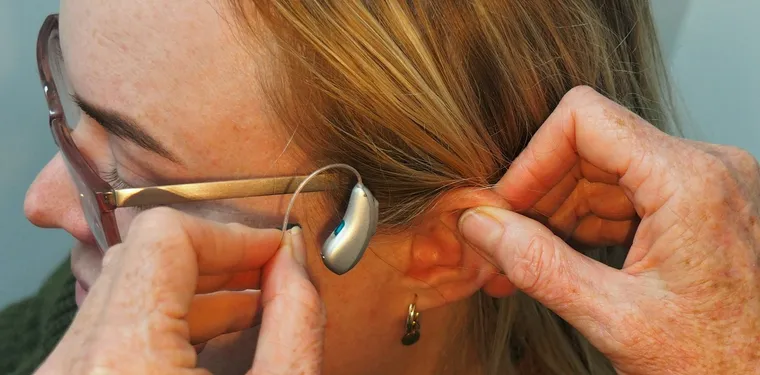Hearing loss is one of the most common health concerns among older adults, yet traditional Medicare coverage for hearing aids remains limited. According to the National Institute on Deafness and Other Communication Disorders, nearly one in three people between ages 65 and 74 experience hearing loss.
Hearing Aids Covered by Medicare
Original Medicare (Parts A and B) does not cover hearing aids or routine hearing exams. While it may cover diagnostic hearing tests ordered by a doctor, the devices themselves must be paid for out of pocket unless you have supplemental coverage.
What Hearing Aids Are Covered by Medicare Advantage Plans?
Some Medicare Advantage (Part C) plans offer coverage for hearing aids. Coverage varies by plan, so seniors should compare benefits before enrolling. These private insurance plans, approved by Medicare, may include:
- Discounts or full coverage for certain models of hearing aids
- Partial coverage toward hearing aid costs
- Routine hearing exams as part of preventive care
Does Medicare Cover Hearing Aid Costs for Seniors?
Traditional Medicare does not cover hearing aid costs for seniors. However, Medicare Advantage plans often step in to fill this gap, offering varying levels of financial assistance. In many cases, beneficiaries may pay a reduced cost depending on the plan’s network providers and coverage terms.
What Medicare Plan Covers Hearing Aids?
Medicare Advantage (Part C) plans are the only Medicare option that may cover hearing aids. These plans are offered by private insurers such as Humana, Aetna, and UnitedHealthcare, each with different coverage levels. Some plans may provide allowances for hearing aid purchases or negotiated discounts.
Medicare Hearing Aid Eligibility
Eligibility depends on the type of Medicare plan you choose.
- Original Medicare: No coverage for hearing aids.
- Medicare Advantage: Seniors enrolled in a Part C plan that includes hearing benefits are eligible for partial or full coverage.
- Hearing Aid Costs Under Medicare
Since Original Medicare does not cover hearing aids, beneficiaries pay out of pocket unless enrolled in a Medicare Advantage plan. Costs typically range from $1,000 to $3,500 per device, depending on technology and features. Medicare Advantage may help reduce these expenses through allowances or provider discounts.
Are OTC Hearing Aids Covered by Medicare?
Over-the-counter (OTC) hearing aids, approved by the FDA for adults with mild to moderate hearing loss, are not covered by Original Medicare. Some Medicare Advantage plans may reimburse or discount certain OTC models, but coverage is limited and varies by provider.
Best Medicare Advantage Plans for Hearing Aids
While coverage depends on state and provider availability, some plans commonly recognized for including hearing aid benefits are:
- Humana Medicare Advantage – often includes hearing aid allowances
- UnitedHealthcare Medicare Advantage – provides discounted hearing aid options
- Aetna Medicare Advantage – may offer routine hearing exams and partial hearing aid coverage
Beneficiaries should carefully review the plan’s summary of benefits to understand coverage limits.
Conclusion
Original Medicare does not cover hearing aids, but many Medicare Advantage plans help reduce costs by covering exams, offering allowances, or providing discounted devices. Seniors should compare available Part C plans in their area to determine which offers the best hearing aid benefits for their needs.
References
- Medicare.gov – Hearing and Balance Exams
- National Institute on Deafness and Other Communication Disorders – Age-Related Hearing Loss
- AARP – Does Medicare Cover Hearing Aids?

